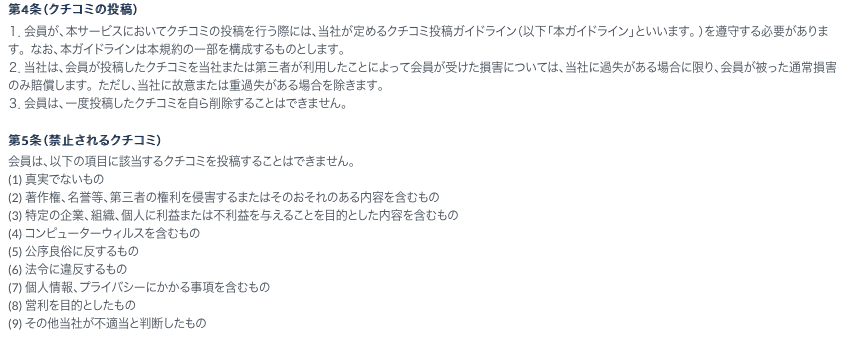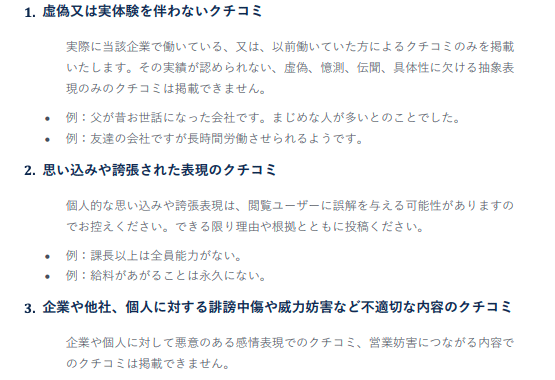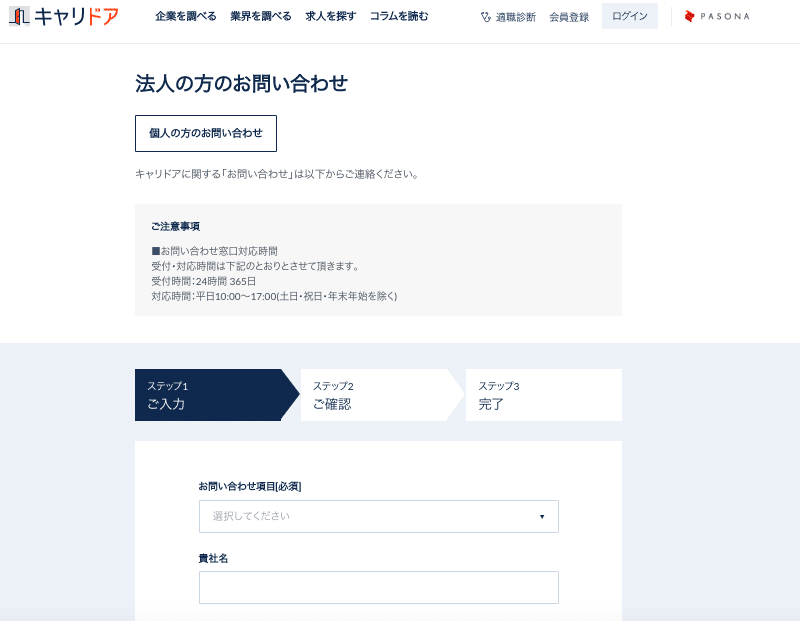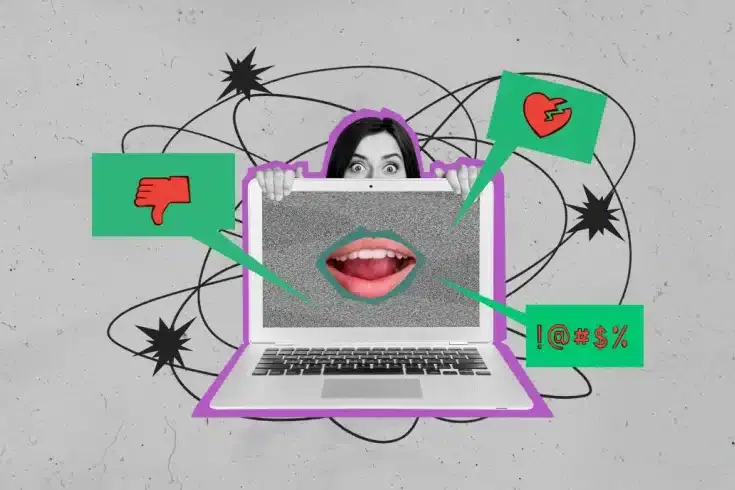What are Reputational Damage Measures in Caridoa?

When considering a job change, it’s common these days to utilize job search websites. Through these platforms, job seekers can gather information about potential employers by researching company details, checking their reputation, and reading reviews. CareerDoor is one such job review site where you can read about companies and feedback from their employees. CareerDoor hosts a range of reviews and information, from positive to negative, providing job seekers with real-life experiences. While this can be beneficial for job seekers, it can potentially have a negative impact on a company’s recruitment efforts and overall management if unfavorable reviews are written and spread. In this article, we will discuss how to manage reputational damage if defamatory reviews are posted on CareerDoor.
Explanation about Careerdoor
Careerdoor is a job change review site operated by Pasona Inc., a company that conducts human resources dispatch and introduction businesses. The biggest feature of Careerdoor is that in addition to subjective information such as “reviews”, it provides objective information that contributes to “understanding the company” and “industry and company analysis information” from a professional perspective, allowing you to obtain various information from multiple perspectives. This allows you to choose your next job not only based on reviews from people who actually worked there, but also from various other factors. Another feature is the ability to compare with other companies in the same industry. Reviews are primarily evaluations of companies that users considering a job change have resigned from or are considering resigning from. Most people who resign have a somewhat negative reason for doing so, and negative information such as “overtime was a given” or “there was no prospect for career advancement” is often written. Careerdoor clearly states that it posts both good and bad content, making it a useful site for job seekers, but it can have negative effects for companies, such as leaving a bad impression or being avoided. There is also the possibility of spiteful comments being posted, and if slanderous comments are posted, it could lead to significant damage such as a decline in the company’s image or loss of trust from customers and shareholders. In this article, we will explain what kind of negative reviews can be posted on Careerdoor and how to deal with them when they are posted.

What Kind of Reputational Damage Can Occur on Caridoor?

Caridoor, which features content based on the reviews of current and former employees, may sometimes display negative reviews. The main place where these reviews are used is on the company-specific “Review & Rating” pages. Below, we introduce the types of negative reviews and reputational damage that can be expected there.
Whistleblowing Reviews, such as Claims of Harassment
Caridoor publishes the raw voices of people who have actually worked at the companies, so the content is primarily based on their experiences during employment. It is conceivable that many seniors who have suffered from harassment at work and had a hard time may post their experiences in reviews, hoping that no one else will have to go through the same thing. In addition to reports of harassment, whistleblowing about working conditions, such as long overtime hours and poor pay, can also be expected.
Such reviews are beneficial for job seekers if they are true. However, for companies, these posts can negatively affect recruitment, making it difficult to carry out desired hiring activities. Especially if the company is trying to improve working conditions or has disciplined employees who have committed harassment, it is undesirable for such posts to continue to exist, as they do not reflect the current reality.
False or Non-Experiential Reviews
For example, a review like “This is the company where my mother used to work, and she said there were absolutely no raises” is not based on the person’s own experience. Also, definitive expressions or exaggerations such as “If you don’t listen to the president, you’re definitely fired” are often far from the truth. Such expressions, despite their lack of basis, can stoke job seekers’ anxieties and significantly lower the company’s image, making them undesirable for companies. Unfortunately, there seem to be actual cases where former employees who left the company with grievances post reviews with the intention of attacking or obstructing the company. Such reviews, which are unclear as to how much is true and use definitive expressions to lower the company’s social evaluation, have a large negative impact and should be deleted.
Reviews Containing Inappropriate Content such as Defamation
Another possibility is reviews that include defamatory descriptions against the company or specific individuals. For example, expressions like “I hate this employee named A in the accounting department” or “This is a fraudulent company that only thinks about its own interests” are not at all beneficial for job seekers looking to change jobs and only attack the company or specific individuals without any basis. For those who may suffer damage to their reputation or other harm due to such posts, it is desirable to have them deleted as soon as possible.
How to Request Removal for Violation of Terms of Use

Caridoor Terms of Use
Article 5 of the Caridoor Terms of Use (Prohibited Reviews) lists prohibited actions. If the review you wish to remove falls under any of these categories, it may be eligible for removal.

Review Posting Guidelines
The Review Posting Guidelines, which are part of the Terms of Use, list examples of reviews that cannot be posted. If the review you wish to remove is similar to these examples, it may be eligible for removal.

How to Request Removal
Caridoor clearly states that removal requests should be made through the contact form, so this is the method you should use.

Example of Requesting Removal for Violation of Terms of Use
Follow the instructions on the contact form to fill it out. For the inquiry item, select “About Reviews”. In the inquiry content field, indicate the URL of the post you want to remove, and specifically explain which part of the post is problematic and why. Make sure to make it easy for Caridoor to identify the post. Also, indicating that the post violates the Terms of Use or the Guidelines increases the likelihood of it being removed, so carefully confirm whether the post violates the Terms of Use and strive to provide a detailed explanation.
For example, let’s take a review that is either false or not based on personal experience, such as “My mother used to work at this company and she said there were absolutely no raises”. You could write the explanation field as follows:
Thank you for your time. I am △△, in charge of recruitment at 〇〇 Securities Co., Ltd.
I would like to request the removal of this review.
In the third line of this review, it is written that “My mother used to work at this company and she said there were absolutely no raises”. This is not a review by an employee and falls under “reviews not based on personal experience” in the guidelines. Also, our company has two raises a year, so it is not true that there are no raises. This falls under “untruthful content” in Article 5, Item 1 of the Terms of Use. Such posts have a negative impact on our recruitment and corporate activities, so we would like to request their removal. Thank you for your understanding.
However, removal due to violation of the Terms of Use is discretionary, and Caridoor is not obligated to remove the post.
If the post is not removed, you may claim that the post is illegal and request measures to prevent transmission, or consider filing a lawsuit against Caridoor. These are legal matters, so you will need to handle them yourself or consult with a lawyer. Be careful when hiring a removal agent other than a lawyer, as it may lead to a violation of the law.
Requesting Removal on the Grounds of Illegality

Legal Measures Available
If the content infringes on rights or violates the law, you can dispute the removal through a lawyer in court. The legal measures that can be taken in relation to online reputation damage control are broadly divided into:
- Request for voluntary removal by transmission prevention measures
- Request for post deletion & provisional disposition
- Request for disclosure of sender information (Disclosure of IP address, name and address)
- Claim for damages (Claim for damages after identifying the poster)
Among these, the requests directly related to deletion are the request for transmission prevention measures, the request for post deletion, and the provisional disposition.
Arguments to be Made Legally
So, when making a legal request for deletion, the first thing to consider is to argue for “defamation”. Defamation is established when:
- “Publicly”
- “Indicating a fact”
- “Defaming a person’s reputation”
all of these apply. For example, if a review based on untrue content such as “It’s normal for this company not to pay overtime” is posted, let’s look specifically at whether it meets the requirements 1 to 3. First, posts on review sites like Caridoor, as in this case, can be said to be “public” because they are placed in a state where an unspecified number of people can view them on the Internet.
Next, “indicating a fact” means to tell a concrete fact that is sufficient to lower a person’s social evaluation, regardless of whether it is true or false. In this case, the content that the company is not paying overtime indicates that the company is violating the Labor Standards Act, which can be said to be sufficient to lower its social evaluation.
Finally, to “defame”, it is sufficient if there is an abstract risk of harm to social evaluation, and it is not necessary for the reputation to be actually infringed. It is not necessary to prove that the post in question was viewed by an unspecified number of people on internet news and SNS, and that criticism and protests flooded the company. It is enough to say that there is an objective risk.
Please refer to the following article for detailed requirements and other details of defamation.
https://monolith.law/reputation/defamation[ja]
Removal through Court Proceedings (Lawsuits and Provisional Measures)
When seeking removal due to legal violations such as defamation, the usual first step is to request a transmission prevention measure. However, this method does not involve the courts and relies on the voluntary removal by the site administrator or operating company (provider). As this is a discretionary measure, removal may not be carried out depending on the decision. In contrast, when going through court proceedings, if removal is approved in court, the provider is compelled to comply due to the binding force of the judgment. Therefore, if a transmission prevention measure is not approved, it is effective to transition to court proceedings.
Provisional measures, as defined in the Japanese Civil Preservation Law, are sought when an immediate resolution is required, before a final judgment is obtained through a formal lawsuit. In cases like defamation or slanderous reviews, there is a high risk of irreparable damage once the information spreads, so it is effective to use the provisional measures system to seek immediate removal of the information. Once a provisional disposition order is issued, the court orders the other party to remove the post, and the other party must comply. In the case of provisional measures, consulting with a lawyer experienced in reputational damage measures can often result in removal within 2-3 months from the time of request, making it an effective method.
For detailed explanations on the removal of articles in cases of defamation or reputational damage, and the procedure for provisional measures, please refer to the article below.
https://monolith.law/reputation/provisional-disposition[ja]
Provisional Disposition for Identifying Posters

In order to take the legal measures mentioned above, it is necessary to identify who made the post, including their name and address. However, most defamation on the Internet is done anonymously, making it difficult to identify the person who made the post (the sender). Therefore, it is necessary to request the provider to disclose the personal information of the person who made the post and identify the poster. This is what is known as identifying the poster through a provisional disposition. A request for sender disclosure is a request for information disclosure to identify the poster, as stipulated by the “Japanese Provider Liability Limitation Act, Article 4, Paragraph 1”. If you request a lawyer, there is a possibility that the poster can be identified by disclosing information such as the poster’s IP address through this sender information disclosure request.
If the poster is identified through this process, it becomes possible to take legal measures such as making the person pledge not to defame in the future due to the damage caused by the defamatory post, claiming damages, or filing a criminal complaint. The flow of these procedures is explained in detail in the article below.
https://monolith.law/reputation/disclosure-of-the-senders-information[ja]
Summary
Caridoor is a site where you can learn about real company information and evaluations based on word-of-mouth information and other data from actual employees. On the other hand, it is also a site where negative posts are widely accepted, as it is clearly stated that both good and bad content will be posted. However, even if reputational damage occurs due to malicious reviews, legal measures may be able to resolve the issue, such as deleting the post. However, the method and claim to be made, and whether deletion is allowed, varies depending on the individual case.
In any case, claiming illegality involves specialized content and methods, making it difficult for individuals to handle, and it also involves legal actions, so the help of a lawyer is necessary. First, consult with a lawyer to determine whether the review in question infringes on rights or violates the law.
Category: Internet





















